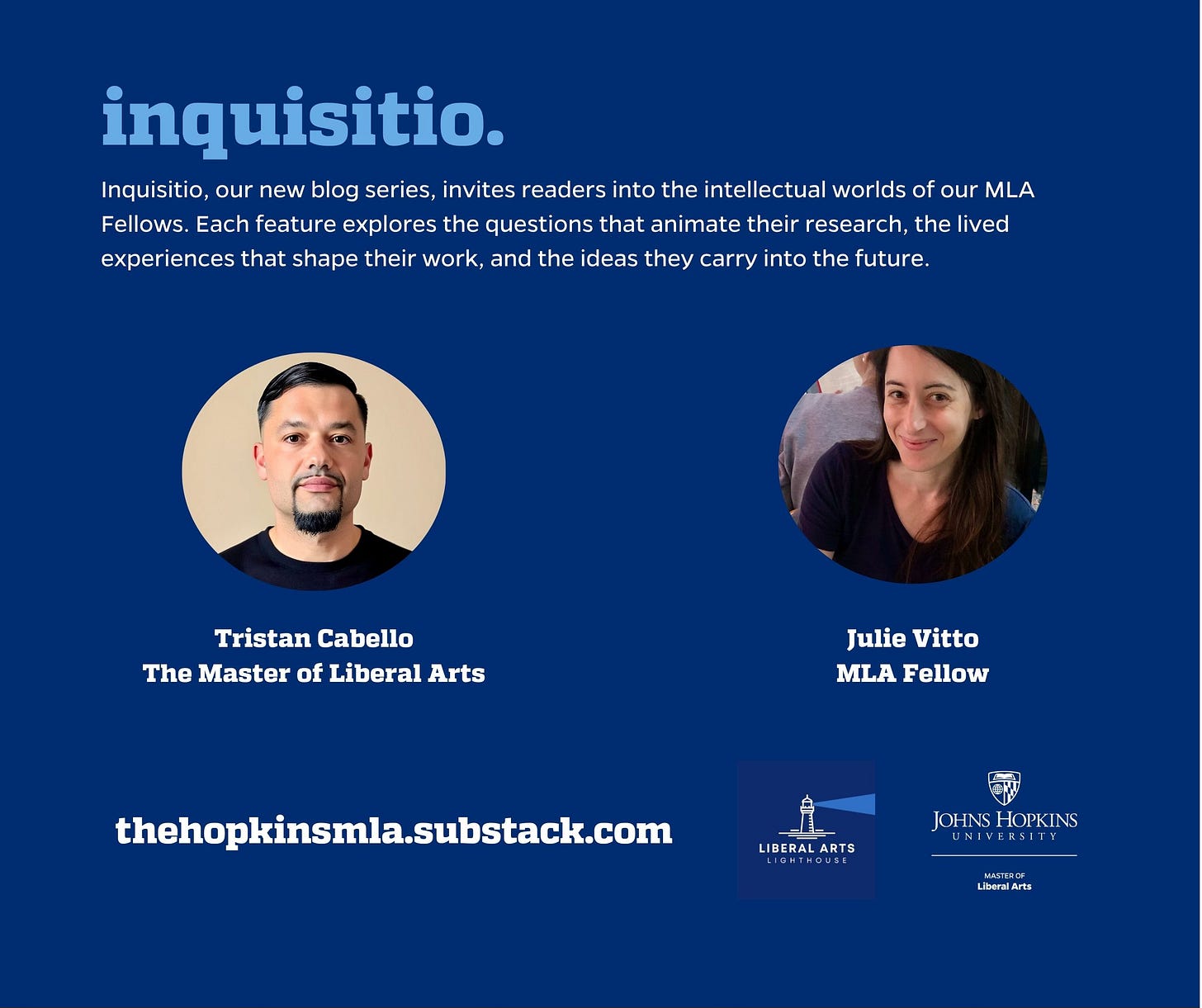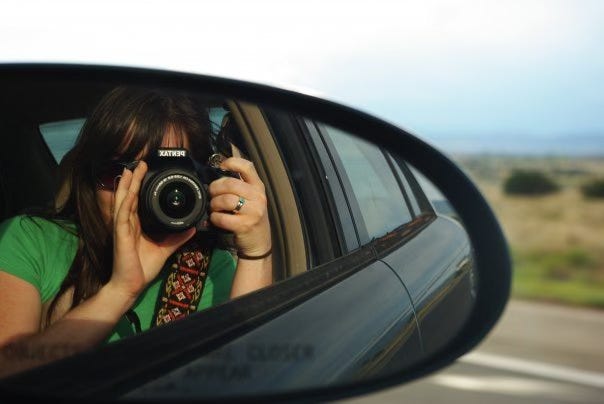Seeing the World Otherwise: Julie Vitto on Editing, Learning, and the Art of Asking Better Questions.
Tristan Cabello
Julie Vitto came to the Master of Liberal Arts at Johns Hopkins to change her pace. A seasoned editor, writer, and community organizer in Washington, DC, she wasn’t looking to specialize further. Instead, she was seeking a framework to understand how the world works, and what might still be possible within it.
“In my 40s, with more lived experience and clarity, I realized I didn’t want to silo myself into one narrow discipline,” she explains. “The interdisciplinary nature of the MLA program, its flexibility, and its intellectual rigor just made sense.”
Julie’s life is already filled with books, language, and the labor of meaning-making. Years ago, she considered an MFA in writing. Today, she works as a senior editor in the art department of a major audiobook publisher. She writes for a progressive newsletter, organizes community book swaps, and co-runs a small press that publishes hopeful, justice-driven stories. What the MLA offered her was a space to grow sharper, slower, and more intentional in her learning.
From Editing to Interrogating
Julie’s coursework in the MLA has given her new tools to grapple with the contradictions she navigates daily—between representation and reality, between what’s said and what’s done. In Dr. David Buyze’s course Intimacies of East/West, she found herself stunned by the historical legacies still shaping global power relations.
“I’m especially drawn right now to the question of belief,” she reflects. “How do we come to know what we think we know? Why does new information so rarely change anything?”
These questions are not abstract. They are embedded in her activist life, where solidarity depends on clarity. In the MLA, theory and practice are not opposites—they are part of the same toolkit. That’s especially true in courses like Six Degrees of Miles Davis, where jazz became a metaphor for the competing ideas we carry and contend with.
Learning on Her Own Terms
Like many professional students, Julie faced the temptation to overdo it early on. “I thought I could take two classes while working full-time,” she says. “I couldn’t. I barely slept, and my laptop came with me everywhere—even to social events.”
That experience taught her the value of pacing. She now takes one class per term, giving herself time to read, reflect, and stay engaged in her community work. She also credits her MLA fellowship with making the journey financially sustainable. “It was more than support—it felt like recognition,” she says.
A New Grammar of Justice and Possibility
Julie doesn’t just study the humanities—she lives with them. Whether editing audio projects, hosting neighborhood reading groups, or curating hopeful speculative fiction, her life is guided by an ethic of care and connection. “I’ve always turned to art, music, history, and literature to understand the world around me,” she says. “The MLA helps me do that with more depth—and more humility.”
Her advice to new students is refreshingly grounded: rest, read, reflect, and take time to sit with what unsettles you. “Let the material wash over you,” she says. “See what lingers. That’s usually where your questions live.”
As she continues her journey through the MLA, Julie’s vision is simple but radical: keep learning. Keep questioning. And keep creating spaces—on the page and in the world—where better futures can be imagined together.




